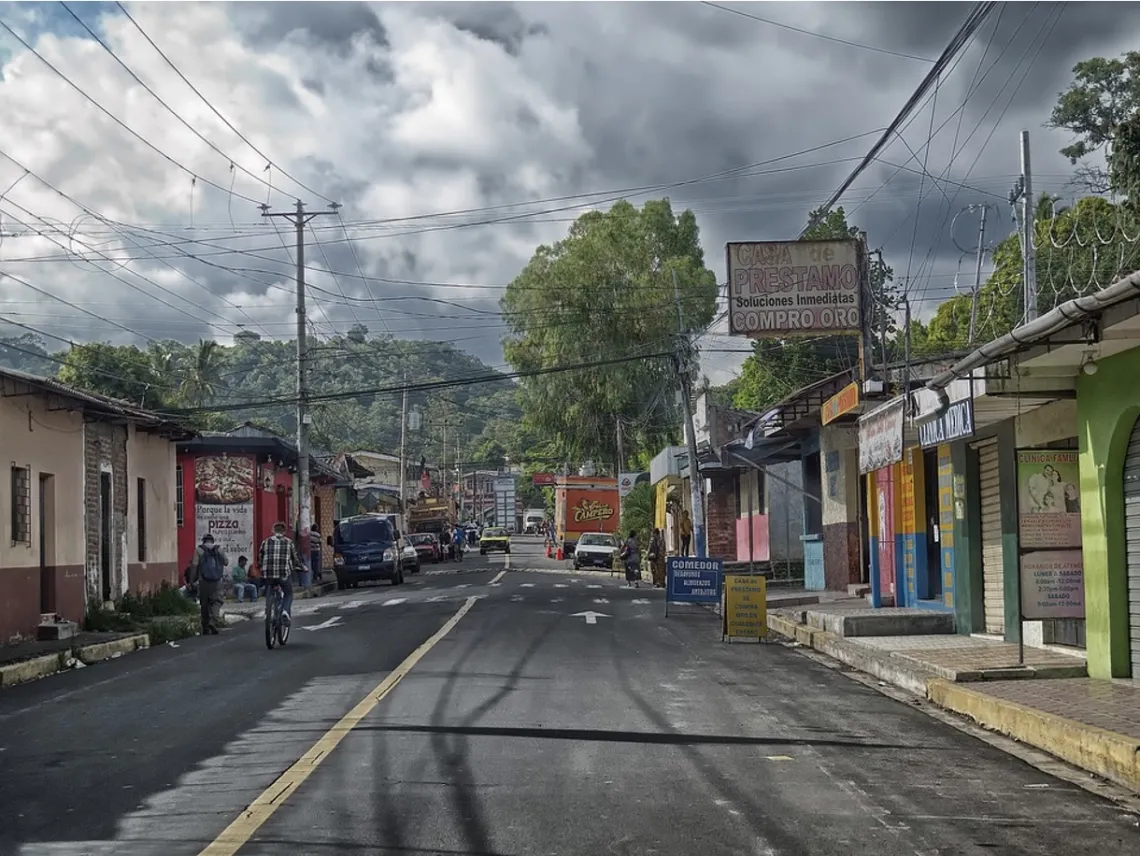Undergraduate Research: Q&A with David Owens

Neighborhood in El Salvador
David Owens is a senior at the University of Arizona majoring in political science. He works at the Basic Needs Center on campus and had the unique opportunity to work as an undergraduate researcher alongside Javier Osorio in the School of Government and Public Policy. He recently talked about what he learned from the experience and the impact it had on his education.
When you decided on UArizona, what compelled you to choose political science as your major?
I’ve lived in Tucson for the last eight years which made attending the University of Arizona a natural choice for me. Political science has always been something that fascinated me, and I ultimately settled on it my sophomore year after having very positive experiences with professors in the program.
How were you presented with the opportunity to become a research assistant for Dr. Osorio, and why did you choose to take that opportunity?
I first met Dr. Osorio in his class, POL 436: Violent Crime and Political Order, which to this day remains one of the best classes I’ve ever taken. He is a wonderful instructor and the topics he covers will be fascinating for anyone interested in understanding how and why governance in modern society is organized. At the conclusion of the class, Dr. Osorio invited me to work with him as an undergraduate research assistant — an offer that I very eagerly accepted thanks to my wonderful experiences in his class.
Briefly describe your field of research and how the topics align with your coursework as a political science major.
The research I assisted Dr. Osorio in very much aligns with the topics I learned about throughout his class. The current focus of his research has surrounded gang activities and recruitment in schools in El Salvador. It places a particular emphasis on understanding what drives young people to participate in organized criminal activity within a socioeconomic context. To further develop our understanding of this issue and expand our frame of analysis, we’ve also been working closely with Dr. Michael Sulkowski from the psychology department of the University of Alabama, with the hopes of approaching this difficult subject through the lens of both criminology and psychology.
How has undergraduate research benefited your academic career?
I’ve found that the opportunities presented by undergraduate research have contributed significantly to my development as a UArizona student. I had a wonderful opportunity to develop additional skills in research and gain an understanding of what the university-level research process entails. My work with Dr. Osorio has also given me the opportunity to develop a familiarity with a variety of new academic tools and practices that I would not have otherwise been exposed to. Perhaps most significantly, my experience with undergraduate research allowed me a chance to experience some of the expectations of graduate-level research before fully delving into it.
What advice would you give to students also considering taking up an undergraduate research opportunity?
If you are planning to pursue an undergraduate research experience, my most important advice is that you should be prepared to keep an open mind and learn new things. You will likely be expected to develop a familiarity with new programs and tools to fulfill your duties, something that might be daunting at times. Be sure to effectively manage your time: It is vital that you balance the deadlines and expectations of your research position with the realities of being a student. Don’t be afraid to ask for help or raise questions if you need to. This isn’t only a job; it’s an opportunity for you to develop your skills and experience!
##

